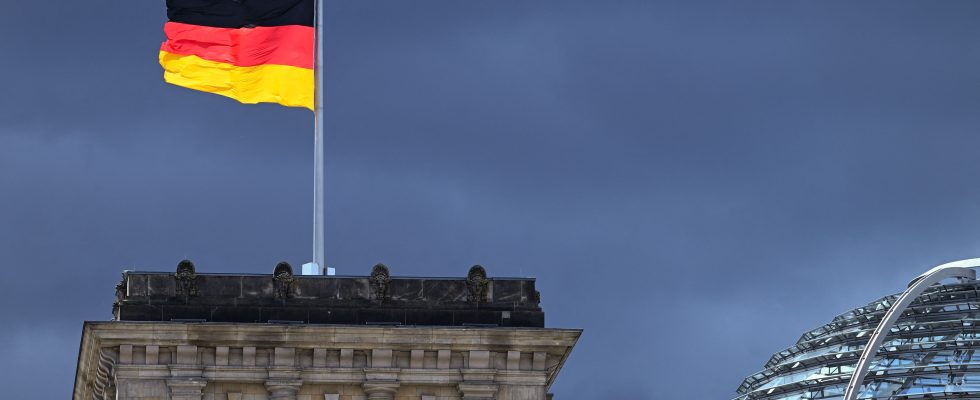The picture was already dark, but it was getting a little darker. With a decline in GDP expected to 0.6% in 2023, Germany remains mired in crisis. The International Monetary Fund (IMF) is counting on a drop of 0.3%, but the observation remains the same: with already two quarters in a row of decline in GDP since the winter, Germany is the only major industrial country to be in recession this year.
This poor performance is worrying across the Rhine. The title “sick man of Europe”, which the country got rid of in the 2000s, has reappeared on the front page of the newspaper The Economist, and half of Germans think that their country will no longer be one of the great economic champions within 10 to 15 years. The cause is energy prices. Certainly down slightly, they remain high due to the use of coal and taxes to finance massive investments in renewable energies. Industry, a pillar of the economy and very energy intensive, is suffering from these costs, and industrial companies are slowing down their investments. A survey published at the end of August indicated that at least a third of them were considering or had already carried out relocations abroad. Worse, last May, the EY barometer placed Germany only in third position of its ranking of the most attractive countries in Europe, behind France and the United Kingdom. Especially since the order books of these companies are not as full as before. China and the United States, Germany’s main economic partners, are now investing in their own generously subsidized industries and are also facing a slowdown in their economies.
Slow recovery in consumption
Another factor in the recession, the crisis in the construction industry. In order to combat inflation in the Eurozone, the European Central Bank (ECB) increased its interest rates from 1.06% in December 2021 to 3.63% in August 2023. For a company who wants to finance a construction, it is therefore much more expensive to borrow funds. Thus, between January and July, the number of building permits fell by 27% across the Rhine.
Finally, household consumption is only picking up very slowly, after being hit hard by inflation exceeding 8% in the fall of 2022. But it has been declining sharply for several weeks. In September, it fell to 4.5% over one year, its lowest level since the start of the war in Ukraine. While France sees its rate rise to 4.9%. In Germany, energy prices are starting to fall and the government has not renewed the experiment of the 9 euro ticket to take all public transport, launched in the summer of 2022. This measure had caused prices to rise transport, and with them inflation. This year, a 49 euro ticket was preferred by Olaf Scholz’s coalition. It is surely through a revival of consumption that the German economy will be able to regain momentum. And from next year: with inflation continuing to fall, economic institutes predict a rebound in German GDP of 1.3% in 2024. A timid start to the recovery, but highly anticipated after the gloom of recent years.
